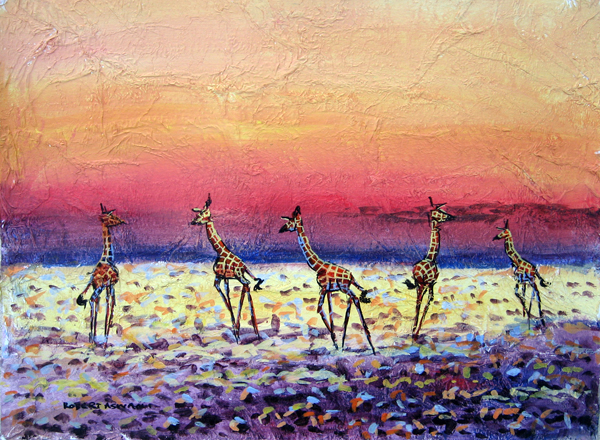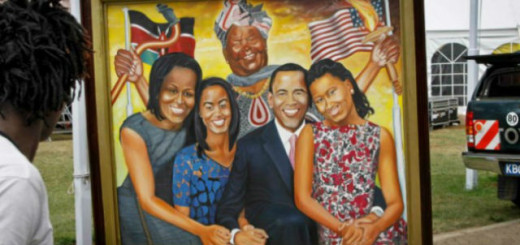Why ‘Outstanding’ and ‘Affordable’ African Art is so Hot Right Now

The champagne flows, the bidders haggle and the unmistakable crack of the gavel sounds. The scene could easily be set at the dapper auction houses of London or New York. But this is the Circle Art auction in Nairobi, Kenya — East Africa’s only contemporary art auction. While hitting the million mark in Kenyan shillings might not be as significant as pounds or dollars, the thrill for local artists and buyers is just as exhilarating.
“There is a lot of money around and people want to buy nice things, says veteran auctioneer Dendy Easton. “I shall never forget what happened in 2013, never happened in my life before, after every lot I sold there was a round of applause. That is excitement. In England when you go to a sale room there are maybe 50 people and everyone is bidding on the internet and telephone. Here you get more than 200 people in the room.”
Africa’s burgeoning art scene is currently experiencing a transformational moment. Nigerian Okwui Enwezor became the first African to direct the Venice Biennale in its 120-year history in 2015 while the price of art on the continent has increased dramatically. British auction house Bonhams has seen average lot prices increase five-fold — to about $50,000 — since it started specializing in contemporary African art in 2007. ArtHouse Contemporary Limited, an auction house based in Lagos, Nigeria, notes that pieces bought at their very first auction, back in 2008, have increased up to 10-fold in value today. Meanwhile, Sotheby’s took in an “outstanding” $84 million in 2014, compared to just $4 million a decade ago.
Although these impressive returns are a long way from those recouped at the Circle Art auction, which focuses specifically on East African art, the Kenyan event can still boast a tidy profit. This year’s auction grossed nearly $200,000 in total. Pieces from artists from Sudan, Ethiopia and Kenya were all on display.
According to art buyer, Brian Owango, the relatively affordable prices ensure there are wise investments to be had for those with a discerning eye. “I think that East African art is a movement,” Owango says. “There are a lot of emotional buyers out there, myself included, and I believe in what they are doing. “The wave is building, it has just started, so it’s from an investment perspective it’s wise to get in,” he adds.
Under the radar
Danda Jaroljmek, director, Circle Art Agency agrees. She points out that while the value of African art has increased greatly in recent years, many talented East African artists have flown under the radar.
“It’s less known than the art market in South Africa or West Africa. We’ve had much less exposure,” Jaroljmek says. “Prices are affordable and you know we are the new thing so people are interested in what’s happening.
“It’s so different, the art from Ethiopia, Sudan, Tanzania, Uganda, Kenya, there’s such different characteristics, different history of art, different art schools – or no art school, so the art is incredibly varied.”
Four pieces at this year’s auction sold for more than a million Kenyan shillings ($100,000). That’s double the number of the year before – showing a marked growth potential. And that trajectory, as well as the interest from both local and international clientele, is heading steadily upwards.
CNN – Tue February 16, 2016

